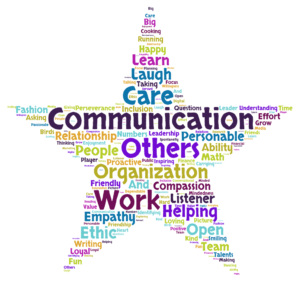Classes at University of Wisconsin-Madison
With specialized courses on the intersection of relationships and finances, consumption and thriving, MORE is offering students a valuable education in financial equality.
Consumer Science 173: Consuming Happiness
40-120 students
 As the saying goes, money can’t buy happiness—but in America, we certainly try. We buy things, experiences, services, and advice on how to improve our happiness. The self-improvement industry is a more than $12 billion business each year, and nearly half of all Americans will purchase a self-help book in their lifetime. Often derided as frivolous, these texts are invaluable windows into the social history and social psychology of our country. This course will provide an overview of the study of happiness and well-being, examine how consumers engage in consumption in pursuit of happiness, and the intersection of money and wellbeing.
As the saying goes, money can’t buy happiness—but in America, we certainly try. We buy things, experiences, services, and advice on how to improve our happiness. The self-improvement industry is a more than $12 billion business each year, and nearly half of all Americans will purchase a self-help book in their lifetime. Often derided as frivolous, these texts are invaluable windows into the social history and social psychology of our country. This course will provide an overview of the study of happiness and well-being, examine how consumers engage in consumption in pursuit of happiness, and the intersection of money and wellbeing.
Students read academic and popular articles on positive psychology, prosocial spending, and explore the psychology of persuasion in the promises associated with this industry. By reading culturally powerful self-help books—and critiques surrounding them—students engage in discussions about the quest to purchase happiness. In addition, students test first-hand whether the advice works in their own lives. Check out former student projects here and a sample syllabus here.
Consumer Science 273: Finances & Families
40 students
 For the majority of Americans, money and family life is intertwined. This course educates future financial planners on the basics of relationship formation and dissolution, gender and family dynamics and the psychology of money with the goal of encouraging financial equality among members of families of all types. Topics include an exploration of individual money “personality types,” conventional wisdom v. research on couples and money challenges, cohabitation, the special issues of finances in same-sex couples and families, social class and diverging demographics family formation, the financial implications of childbearing outside marriage, the “marriage tax” v. the “singles penalty,” best practices for teaching children and teens about finances, the psychology of spending and saving, women as the primary breadwinners and real vs. imagined gender differences in financial approaches.
For the majority of Americans, money and family life is intertwined. This course educates future financial planners on the basics of relationship formation and dissolution, gender and family dynamics and the psychology of money with the goal of encouraging financial equality among members of families of all types. Topics include an exploration of individual money “personality types,” conventional wisdom v. research on couples and money challenges, cohabitation, the special issues of finances in same-sex couples and families, social class and diverging demographics family formation, the financial implications of childbearing outside marriage, the “marriage tax” v. the “singles penalty,” best practices for teaching children and teens about finances, the psychology of spending and saving, women as the primary breadwinners and real vs. imagined gender differences in financial approaches.
Inter-HE 201: Belonging, Purpose & the Ecology of Human Happiness
120 students
 From the microbes that inhabit our guts to political revolutions sparked by a tweet, human lives are embedded in an ecology of complex, interdependent systems. Using multiple disciplinary perspectives, the EcoYou course addresses basic questions about personal and collective flourishing and the greater good by placing students into the ever-evolving web of human ecology.
From the microbes that inhabit our guts to political revolutions sparked by a tweet, human lives are embedded in an ecology of complex, interdependent systems. Using multiple disciplinary perspectives, the EcoYou course addresses basic questions about personal and collective flourishing and the greater good by placing students into the ever-evolving web of human ecology.
EcoYou challenges students to connect their academic learning to their own lives in an exploration of the art and science of purposeful living. Online multimedia resources free up class meeting time for in-depth discussions and peer-to-peer learning in a small seminar format. Opportunities are in place to build community while developing active, collaborative and engaged learning skills that lead to success in college and beyond. In EcoYou, using both an academic and personal lens, students explore topics of identity and self-presentation, purpose and meaning, belonging and connection, relationships, civic responsibility, and power and privilege. View an example syllabus here.

